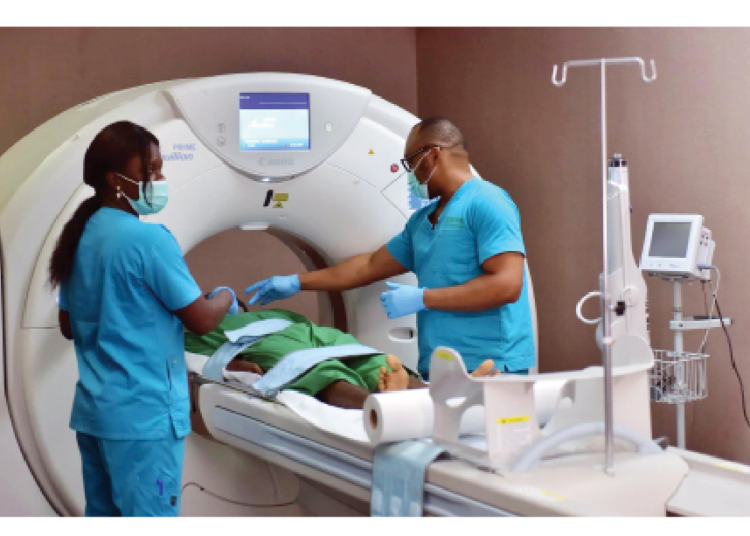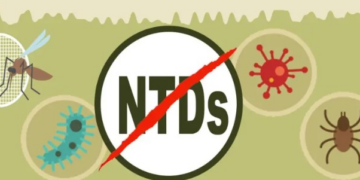For many cancer survivors, the joy of overcoming the disease is often overshadowed by concerns about fertility loss due to aggressive treatments like chemotherapy and radiation. However, advancements in reproductive health are providing new hope, ensuring that survival does not mean the end of the dream of motherhood.
The Medical Director of Nordica Fertility Centre, Dr. Abayomi Ajayi, highlighted the importance of fertility preservation for cancer patients. “Many have survived cancer, but one of the consequences is the loss of reproductive capability due to treatment. As survival rates improve, the focus now shifts to ensuring these women can have children post-treatment,“ he explained.
Cancer treatments often damage the ovaries, reducing egg quality and quantity, which can lead to infertility. Recognising this challenge, the Nordica Fertility Centre and the FCTA are working together to integrate fertility preservation into cancer care plans.
Fertility preservation encompasses a range of medical interventions designed to protect or restore the reproductive potential of individuals undergoing treatments that may impair fertility. For women, this includes egg freezing (oocyte cryopreservation), ovarian tissue freezing, and embryo freezing. Men can opt for sperm banking before undergoing cancer treatment.
Dr. Ajayi, who spoke on the topic: „Onco Fertility (Preserving Fertility in the Face of Cancer Management) during the Abuja Reproductive Health Week, emphasised that awareness is key. “You can only make use of something you are aware of. With this partnership, we hope to create awareness and improve access,” he stated.
Despite these medical advancements, many Nigerian women remain unaware of fertility preservation options. Some still travel abroad for treatments available locally. Dr. Ajayi stressed the need for widespread awareness and media collaboration to inform the public about these life-changing options.
“We owe it to our people to let them understand and know what is available locally. Some patients are even referred back to us from clinics abroad because they don’t realize the service is available here,“ he said.
Also speaking at the event, the Mandate Secretary for Health and Environment, FCTA, Dr. Adedolapo Fasawe, reaffirmed the government‘s commitment to making reproductive health care more accessible. „We want the FCT to become the women’s care and reproductive health centre of Nigeria. People travel abroad for procedures that they can now access right here,“ she said.
“Cancer does not only affect health; it affects the entire life trajectory of a woman, including her ability to conceive. Through this partnership, we are ensuring that survivors have the option to become mothers when they are ready,” she said.
With Abuja designated as a Cancer Challenge City, there is increasing global support, including from the Clinton Health Access Initiative (CHAI), to improve cancer care. Early detection and fertility preservation efforts are now being prioritized to ensure that women have comprehensive healthcare options.
Alongside the focus on fertility preservation for cancer survivors, the event also spotlighted groundbreaking advancements in fibroid treatment. One of the most significant developments is the introduction of non-invasive surgery using high-intensity focused ultrasound (HIFU), a technology that eliminates fibroids without traditional surgical intervention.
Dr. Ajayi revealed that there are currently only two HIFU machines in Nigeria, both housed at Nordica Fertility Centre, making it the first facility in West Africa to introduce this innovation. „Fibroid is a known cause of infertility. With this technology, we can treat fibroids without affecting a woman‘s ability to conceive,“ he explained.
While the breakthroughs in fertility preservation and fibroid treatment are promising, cost remains a significant barrier for many Nigerian women. However, Dr. Fasawe expressed optimism about future affordability measures: „Regarding fibroid care, we are looking at ways to support women, either through out-of-pocket payments, assistance, or insurance to ensure these procedures are both available and affordable.“
Stakeholders hope that discussions like these will lead to more policy-driven solutions, improved healthcare infrastructure, and increased awareness.
With continued partnerships, increased awareness, and advancements in reproductive medicine, cancer survivors no longer have to choose between survival and motherhood. As these initiatives expand, the dream of motherhood remains alive for countless women, offering hope and a renewed sense of possibility beyond survival.





